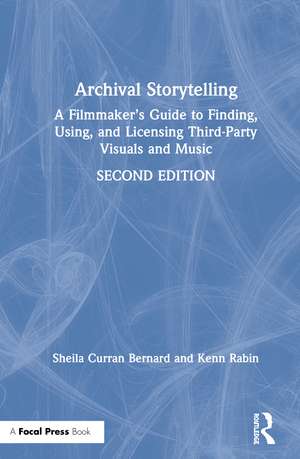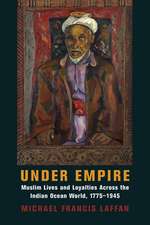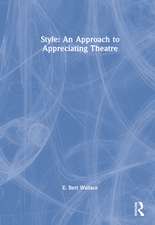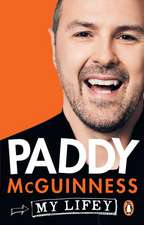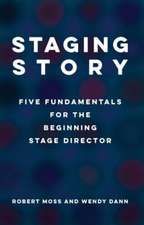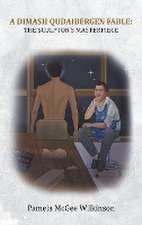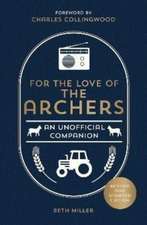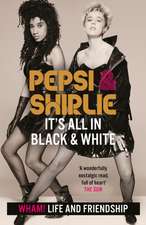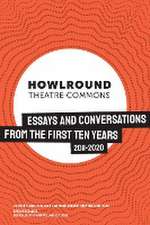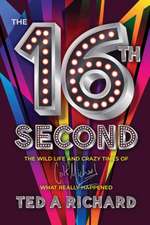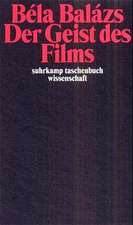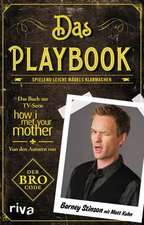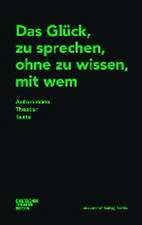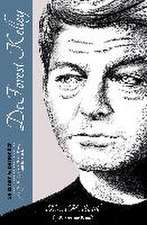Archival Storytelling: A Filmmaker’s Guide to Finding, Using, and Licensing Third-Party Visuals and Music
Autor Sheila Curran Bernard, Kenn Rabinen Limba Engleză Hardback – 12 mai 2020
Whether you’re a top Hollywood filmmaker or a first-time documentarian, at some point you are going to want to find, use, and license third-party materials—images, audio, or music that you yourself did not create—to use them in your work. This book explains what’s involved in researching and licensing visuals and music, and exactly what media makers need to know when filming in a world crowded with rights-protected images and sounds. Filled with insights from filmmakers, archivists, and intellectual property experts, this second edition defines key terms such as copyright, fair use, public domain, and orphan works. It guides readers through the complex archival process and challenges them to become not only archival users but also archival and copyright activists.
This book is an essential resource for both students and professionals, from seasoned filmmakers to those creating their first projects, offering practical advice for how to effectively and ethically draw on the wealth of cultural materials that surround us.
| Toate formatele și edițiile | Preț | Express |
|---|---|---|
| Paperback (1) | 281.53 lei 22-36 zile | +23.53 lei 6-12 zile |
| Taylor & Francis – 12 mai 2020 | 281.53 lei 22-36 zile | +23.53 lei 6-12 zile |
| Hardback (1) | 936.47 lei 22-36 zile | +26.19 lei 6-12 zile |
| Taylor & Francis – 12 mai 2020 | 936.47 lei 22-36 zile | +26.19 lei 6-12 zile |
Preț: 936.47 lei
Preț vechi: 1029.09 lei
-9% Nou
Puncte Express: 1405
Preț estimativ în valută:
179.25€ • 194.77$ • 150.67£
179.25€ • 194.77$ • 150.67£
Carte disponibilă
Livrare economică 31 martie-14 aprilie
Livrare express 15-21 martie pentru 36.18 lei
Preluare comenzi: 021 569.72.76
Specificații
ISBN-13: 9781138915046
ISBN-10: 1138915041
Pagini: 338
Ilustrații: 1 Line drawings, black and white; 39 Halftones, black and white
Dimensiuni: 152 x 229 x 29 mm
Greutate: 0.61 kg
Ediția:2 ed
Editura: Taylor & Francis
Colecția Routledge
Locul publicării:Oxford, United Kingdom
ISBN-10: 1138915041
Pagini: 338
Ilustrații: 1 Line drawings, black and white; 39 Halftones, black and white
Dimensiuni: 152 x 229 x 29 mm
Greutate: 0.61 kg
Ediția:2 ed
Editura: Taylor & Francis
Colecția Routledge
Locul publicării:Oxford, United Kingdom
Cuprins
Acknowledgments
CHAPTER 1 Introduction
PART 1 • ABOUT ARCHIVAL MATERIALS
CHAPTER 2 Still and motion picture photography: a brief history
CHAPTER 3 Recorded sound: a brief history
CHAPTER 4 User beware: evaluating the archival record
CHAPTER 5 Evidence on film: A conversation with Rick Prelinger
PART 2 • working with ARCHIVAL MATERIALS
CHAPTER 6 Finding what you need
CHAPTER 7 Should you hire a professional?
CHAPTER 8 Organizing and ordering third-party materials
CHAPTER 9 Creative and ethical considerations
CHAPTER 10 The power of eyewitness accounts: A conversation with Roberta Grossman
PART 3 • RIGHTS AND LICENSES
CHAPTER 11 Introduction to rights and licenses
CHAPTER 12 Public domain
CHAPTER 13 Fair use
CHAPTER 14 Fair dealing, moral rights, and more: A conversation with Hubert Best
CHAPTER 15 Licensing visuals
CHAPTER 16 Licensing music
PART 4 • Additional Material
CHAPTER 17 Afterword
About the authors
Index
CHAPTER 1 Introduction
PART 1 • ABOUT ARCHIVAL MATERIALS
CHAPTER 2 Still and motion picture photography: a brief history
CHAPTER 3 Recorded sound: a brief history
CHAPTER 4 User beware: evaluating the archival record
CHAPTER 5 Evidence on film: A conversation with Rick Prelinger
PART 2 • working with ARCHIVAL MATERIALS
CHAPTER 6 Finding what you need
CHAPTER 7 Should you hire a professional?
CHAPTER 8 Organizing and ordering third-party materials
CHAPTER 9 Creative and ethical considerations
CHAPTER 10 The power of eyewitness accounts: A conversation with Roberta Grossman
PART 3 • RIGHTS AND LICENSES
CHAPTER 11 Introduction to rights and licenses
CHAPTER 12 Public domain
CHAPTER 13 Fair use
CHAPTER 14 Fair dealing, moral rights, and more: A conversation with Hubert Best
CHAPTER 15 Licensing visuals
CHAPTER 16 Licensing music
PART 4 • Additional Material
CHAPTER 17 Afterword
About the authors
Index
Notă biografică
Sheila Curran Bernard is an Emmy and Peabody Award-winning filmmaker and writer with credits on nearly fifty hours of theatrical and television programming, and the author of Documentary Storytelling, now going into its fifth edition. She is an associate professor in the Department of History at the University at Albany, State University of New York.
Kenn Rabin is a consulting producer for narrative features and documentaries and an internationally-recognized expert on the use of archival materials in film storytelling, with over one hundred credits on projects including Troop Zero (Bert & Bertie), Selma (Ava DuVernay), Milk (Gus Van Sant), and the acclaimed PBS series Eyes on the Prize and Vietnam: A Television History.
Kenn Rabin is a consulting producer for narrative features and documentaries and an internationally-recognized expert on the use of archival materials in film storytelling, with over one hundred credits on projects including Troop Zero (Bert & Bertie), Selma (Ava DuVernay), Milk (Gus Van Sant), and the acclaimed PBS series Eyes on the Prize and Vietnam: A Television History.
Recenzii
Praise for Archival Storytelling, 1st edition
"The excellent new resource, Archival Storytelling, is really two books in one: a detailed how-to guide for filmmakers on the process of researching, acquiring, and clearing rights to archival materials; and a deeper exploration of the implications, ethical and creative, of using these materials to tell new stories."
—Grace Lile, American Archivist (The Society of American Archivists)
"Kenn Rabin and Sheila Curran Bernard have written an important book, one that will serve as the definitive text on archive-based filmmaking for years to come…I have been working with film and video archives for over twenty years, and I understand the hunger for this information in the production communities. This book delivers the information, but also reinforces why the archive-based program, done right, is a critical part of our cultural conversation.
— Matthew White, Filmmaker
"This book is a great resource because it surveys the entire landscape from ethical/creative considerations to fair use to changes in the digital age, and the focus is always on the importance of telling stories."
— Ingrid Kopp, Shooting People
"I am often asked how to work with archival materials. Now I have an easy answer: Get a copy ofArchival Storytellingand read it. Everything’s there — how to use archival materials, acquire them, and most of all, how to think about them.Archival Storytellingis indispensable."
— David Grubin, Filmmaker
"This is it, the book that will save you thousands of dollars and untold hours of frustration. It will be the single best purchase your production company will make.Archival Storytellingclearly explains the entire process of researching, acquiring and licensing archival footage and music. Included are time-tested tips and techniques for efficiently managing the work flow and negotiating rights."
— Ann Petrone, Archival Supervisor
"One of the best — and most needed — texts I have seen in a while. The challenge is to keep what is a fairly technical aspect of filmmaking interesting without compromising the quality and depth of information. The authors have done an exceptional job in this regard… There is the strong sense of being in the presence of experienced filmmakers and researchers who accept that while there are standard practices, archival use and intellectual property laws, etc. are contingent fields in which each case must be assessed and dealt with on its merits."
— Bruce Sheridan, Chair, Film & Video
Department, Columbia College
"I’ve been making historical documentaries for many years, yet I learned new things from this book. This is the definitive guide for archival research for documentary filmmakers. An invaluable resource."
— Mark Jonathan Harris, Filmmaker and Distinguished Professor,
School of Cinematic Arts, University of Southern California
Praise for Bernard’s Documentary Storytelling
"An extremely useful book for those who want to know more about how to make a documentary film is Sheila Curran Bernard's comprehensive Documentary Storytelling: Creative Nonfiction on Screen… It stresses the use of narrative techniques in documentary production, provides examples of treatments, and includes interviews with a number of important filmmakers."
— Bill Nichols, Introduction to Documentary, 3rd ed.
With the availability of high-quality affordable cameras and editing equipment, documentary filmmakers today enjoy a freedom in shaping their films that their counterparts a decade ago couldn’t have imagined. As the new aesthetic is shaped, Sheila Curran Bernard’s brilliant and effective Documentary Storytelling … aims to guide the Errol Morrises of tomorrow with great advice and practical knowledge that every documentarian would benefit from.
— BackStage
With all the buzz over blockbuster docs, Focal Press serves up a perfectly timed winner in a much-neglected area. True to the nature of the beast, the book is more about filmmaking as a whole, and how and where storytelling weaves into the overall process. It succeeds in covering every aspect without belabouring any. Not only does Bernard write from the viewpoint of an award-winning filmmaker (she’s a writer, director, and producer), but the last 100 pages include extensive interviews with a wide range of acclaimed documentarians.
— Canadian Screenwriter (Writers Guild of Canada)
[A] pragmatic exploration of the role of narrative in nonfiction filmmaking . . . In writing this volume Bernard demonstrates to documentarians how story can be more effectively incorporated into every level of nonfiction filmmaking from conception to development and pre-production, in the field and in the editing room. Her discussions incorporate many examples from contemporary documentaries to illustrate a variety of salient points.
— Documentary (International Documentary Association)
While documentaries are nonfiction, they are certainly not objective, and even the smallest choices in writing, filming, interviewing, narrating, or scoring can drastically alter the perspective of the film, and in turn, the audience. Bernard is keenly aware of the power of persuasive images, and her insistence on complexity and integrity is a consistent theme throughout the book.
— The Independent (Association of Independent Video and Filmmakers)
"The excellent new resource, Archival Storytelling, is really two books in one: a detailed how-to guide for filmmakers on the process of researching, acquiring, and clearing rights to archival materials; and a deeper exploration of the implications, ethical and creative, of using these materials to tell new stories."
—Grace Lile, American Archivist (The Society of American Archivists)
"Kenn Rabin and Sheila Curran Bernard have written an important book, one that will serve as the definitive text on archive-based filmmaking for years to come…I have been working with film and video archives for over twenty years, and I understand the hunger for this information in the production communities. This book delivers the information, but also reinforces why the archive-based program, done right, is a critical part of our cultural conversation.
— Matthew White, Filmmaker
"This book is a great resource because it surveys the entire landscape from ethical/creative considerations to fair use to changes in the digital age, and the focus is always on the importance of telling stories."
— Ingrid Kopp, Shooting People
"I am often asked how to work with archival materials. Now I have an easy answer: Get a copy ofArchival Storytellingand read it. Everything’s there — how to use archival materials, acquire them, and most of all, how to think about them.Archival Storytellingis indispensable."
— David Grubin, Filmmaker
"This is it, the book that will save you thousands of dollars and untold hours of frustration. It will be the single best purchase your production company will make.Archival Storytellingclearly explains the entire process of researching, acquiring and licensing archival footage and music. Included are time-tested tips and techniques for efficiently managing the work flow and negotiating rights."
— Ann Petrone, Archival Supervisor
"One of the best — and most needed — texts I have seen in a while. The challenge is to keep what is a fairly technical aspect of filmmaking interesting without compromising the quality and depth of information. The authors have done an exceptional job in this regard… There is the strong sense of being in the presence of experienced filmmakers and researchers who accept that while there are standard practices, archival use and intellectual property laws, etc. are contingent fields in which each case must be assessed and dealt with on its merits."
— Bruce Sheridan, Chair, Film & Video
Department, Columbia College
"I’ve been making historical documentaries for many years, yet I learned new things from this book. This is the definitive guide for archival research for documentary filmmakers. An invaluable resource."
— Mark Jonathan Harris, Filmmaker and Distinguished Professor,
School of Cinematic Arts, University of Southern California
Praise for Bernard’s Documentary Storytelling
"An extremely useful book for those who want to know more about how to make a documentary film is Sheila Curran Bernard's comprehensive Documentary Storytelling: Creative Nonfiction on Screen… It stresses the use of narrative techniques in documentary production, provides examples of treatments, and includes interviews with a number of important filmmakers."
— Bill Nichols, Introduction to Documentary, 3rd ed.
With the availability of high-quality affordable cameras and editing equipment, documentary filmmakers today enjoy a freedom in shaping their films that their counterparts a decade ago couldn’t have imagined. As the new aesthetic is shaped, Sheila Curran Bernard’s brilliant and effective Documentary Storytelling … aims to guide the Errol Morrises of tomorrow with great advice and practical knowledge that every documentarian would benefit from.
— BackStage
With all the buzz over blockbuster docs, Focal Press serves up a perfectly timed winner in a much-neglected area. True to the nature of the beast, the book is more about filmmaking as a whole, and how and where storytelling weaves into the overall process. It succeeds in covering every aspect without belabouring any. Not only does Bernard write from the viewpoint of an award-winning filmmaker (she’s a writer, director, and producer), but the last 100 pages include extensive interviews with a wide range of acclaimed documentarians.
— Canadian Screenwriter (Writers Guild of Canada)
[A] pragmatic exploration of the role of narrative in nonfiction filmmaking . . . In writing this volume Bernard demonstrates to documentarians how story can be more effectively incorporated into every level of nonfiction filmmaking from conception to development and pre-production, in the field and in the editing room. Her discussions incorporate many examples from contemporary documentaries to illustrate a variety of salient points.
— Documentary (International Documentary Association)
While documentaries are nonfiction, they are certainly not objective, and even the smallest choices in writing, filming, interviewing, narrating, or scoring can drastically alter the perspective of the film, and in turn, the audience. Bernard is keenly aware of the power of persuasive images, and her insistence on complexity and integrity is a consistent theme throughout the book.
— The Independent (Association of Independent Video and Filmmakers)
Descriere
Fully revised and updated, Archival Storytelling is a timely, pragmatic look at the use of audiovisual materials available to filmmakers and scholars, from the earliest photographs of the 19th century to the work of media makers today.
